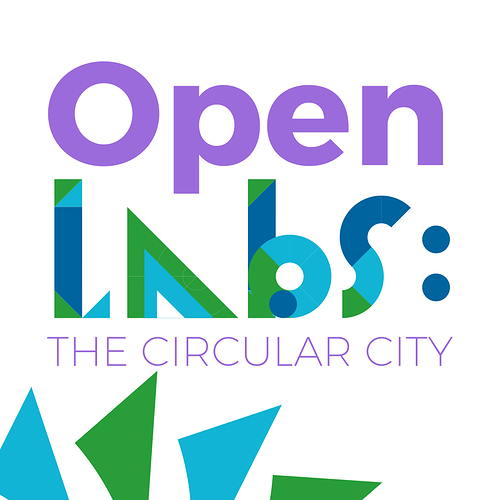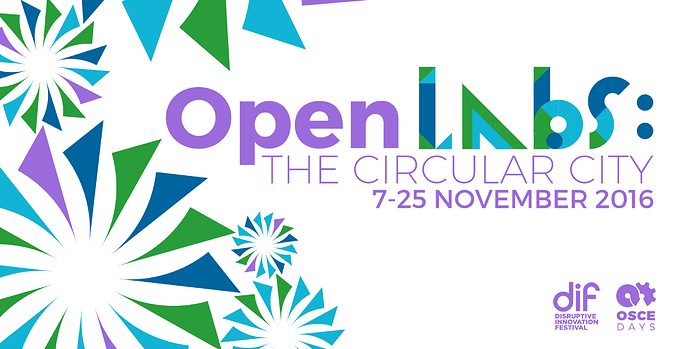####FAQ
This is the FAQ (Frequently Asked Questions) of the Open Labs on The Circular City happening from November 7–25 2016. Feel free add new questions in the comments.
![]()
UPDATE: The Open Labs have ended. Please study the DOCUMENTATION.
![]()
#What is OSCEdays? What is DIF? And what are the Open Labs?
![]()

![]()
The OSCEdays = Open Source Circular Economy Days – is a global project, community and resource base to develop a Circular Economy by exploring and using Open Source Methodologies for it. Check the website and history of the project for more.
![]()
![]()
![]()
The DIF = Disruptive Innovation Festival is an open online festival on the Circular Economy happening from November 7-25 2016 for the 3rd time.
![]()

![]()
The Open Labs: The Circular City is a collaboration between the two organizations for the DIF Festival 2016 synergizing the OSCEdays structure and DIF audience to explore the topic of ‘the circular city’ through online collaboration and hands on actions on the ground.
![]()
#What will happen during the Lab? Tell me about the 3 Phases.
The Lab is an open participatory process with online and offline aspects. It follows the structure of the OSCEdays. The core idea is the creation of open ACTION protocols – simple and fully documented step by step guides for practical actions to be used and build upon by everyone in the world. The practical implementation of these ACTIONS happens during local OSCEdays events.
During the labs we have a shared global subject – ‘the circular city’. And the process is divided into 3 overlapping phases. Each phase will be opened through an open video streaming. Here are the three phases:
####PHASE 1 – PLAN – Brainstorming & Learning
Phase 1 (Nov 1-12) is an open online process where we collect ideas and working practices for the circular city by interacting with the DIF program. We are not looking for meta-blabla and far fetched science fiction but little practical things people can start to work on, play with and implement right now in their city. We invite people to start and build teams around ideas to explore them further in the next phases:
Opening VIDEO Stream: Nov. 7, 20:00 GMT
####PHASE 2 – CREATE – Creating ACTIONS
Phase 2 (Nov 11-19) is about taking ideas form phase one and turn them into written down and openly shared OSCEdays ACTIONS – that can be used and build upon by people across the globe in phase 3 and also when the Lab has ended.
Opening VIDEO Stream: Nov. 11, 10:00 GMT
####PHASE 3 – ACT – Implement ACTIONS in local events
Phase 3 (Nov 18-25 +) is the ‘implementation phase’. Everyone in the world is invited to take one or more of the developed ACTIONS and implement/test them in a small local event or happening. The events and offline activities are connected online for global exchange and collaboration. This is supposed to happen mostly from November 18-25 but also earlier or later dates can be added.
OPENING VIDEO Stream: Nov. 18, 11:00 GMT
![]()
#How Can I Take Part?
Just do it :-). The whole process how to plug in is described and linked to in the answer above already. Join the discussions, create an ACTION and set up a local event.
We invite you to engage with the rest of the DIF Festival program: Watch talks, join discussions, ask questions and cross pollinate between the Lab and the DIF talks, bring the DIF audience to the lab and the lab researchers to the DIF talks.
You are also invited to join the meta-discussions about the lab - how it is built and facilitated.
![]()
#Can I Become A Partner With My Institution?
Yes, you can. If you want to run a local event – just do it and follow the usual signing up process.
Or do you have something else in mind? Like offering resources, sharing things, propose projects and so on – get in touch with the OSCEdays partnership team.
![]()
#More Questions?
Do you have another question? Sign up to the forum and post a comment below (preferred) – or contact us via email.
